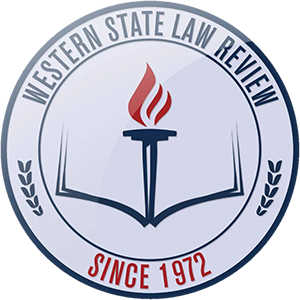Western State Law Review
Western State College of Law
15101 Red Hill Ave
Tustin, CA 92780
714-738-1000
Programs, credential levels, technology and scheduling options are subject to change. Western State College of Law at Westcliff University, 15101 Red Hill Ave, Tustin, CA 92780 © 2025 Western State College of Law. All rights reserved. Our email address is materialsreview@wsulaw.edu.
See wsuprograms.info for program duration, tuition, fees and other costs, median debt, salary data, alumni success, and other important info.

